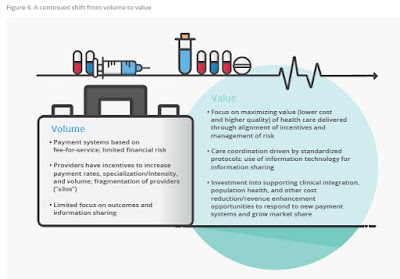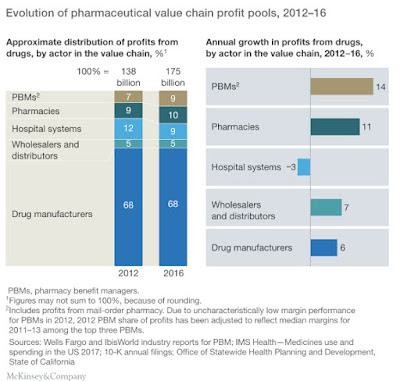Wednesday, February 28, 2018
Tuesday, February 27, 2018
Sunday, February 25, 2018
Random charts - financial security
Source: The Role of Emergency Savings in Family Financial Security: What Resources Do Families Have for Financial Emergencies (14-pgPDF)
The conclusion of the report? "...No matter how household well-being is measured, most Americans today do not have enough savings to weather a financial shock, and they feel this vulnerability acutely: Respondents expressed a clear desire to save, but the reality for many households is that they have far less of a financial cushion than they want or need. Many forces combined to produce the low levels of saving in U.S. households, including choices that families make about
their finances—such as when and how much to spend—the resources they have, and needs that can drain their accumulated savings.
The challenges that Americans face in building savings are made steeper by the fact that, as households use their savings to address unexpected expenses and losses of income, they then need to replenish those reserves. In fact, the first brief in this series found that, although it could not demonstrate that shocks caused financial hardship, households that have had a financial shock have median liquid savings that are almost $4,000 below those that have not.
These findings reveal that significant parts of the population are at financial risk, but they also present an opportunity for broad-based efforts to enable and support family saving. Strategic policy changes have the potential to enhance households’ opportunity and incentives to build financial security. The next brief in this series will explore how Americans think about their savings and how insights into family finances can shape the creation of public policies and programs that can help households close their savings gaps."
Thursday, February 22, 2018
2018 MLR update

This blog has previously written multiple times about the Medical Loss Ratio (MLR) since it was initially targeted by the ACA, and from the start pointed out that it was a poor instrument to use to achieve the desired goal of reducing healthcare costs...
Fast forward to 2018 and 'Insurers use 'medical loss ratios' to cheat us' looks at MLRs and discusses a NBER report that says that "... minimum MLR requirements encourage higher costs, not lower."
Some previous blog entries referencing the MLR:
MLR - Year 2 - June 22, 2013
All you ever wanted to know about the MLR - Sep 23rd, 2012
Latest MLR update - Dec 4th, 2011
The MLR saga continues - May 13th, 2011
Misc update (MLR) - Mar 26th, 2011
Misc update - V - Feb 13th, 2011
Misc updates - MLR - Oct 25th, 2010
MLR Redux - Aug 24th, 2010
MLR update - Jun 27th, 2010
Health care re-form VIII (More nonsense) - August 28th, 2009
Sunday, February 11, 2018
Random charts - healthcare value
"The intrinsic demand for healthcare services continues to rise in the
United States, given population aging, the increasing prevalence of
chronic disease, and the search for a higher quality of life. In
addition to increasing demand, three other major factors make healthcare
a dynamic industry with significant opportunity:
- Consumers, employers, and the government continue to see the financial burden of healthcare grow faster than their incomes or revenues—a long-standing gap unlikely to change soon. Furthermore, new challenges, such as the ongoing opioid crisis, continue to emerge. The result has been a continuing search for fresh solutions and reforms, which has kept—and will keep—the industry in a state of flux.
- Major tectonic shifts are occurring, not only in regulations but also in three other areas: technology (both medical science and technology and the onward march of big data, advanced analytics, machine learning, and digital), industry orientation (the move toward B2C and rapidly rising consumer expectations), and reallocation of risk across the value chain. These forces are fundamentally altering the structure of the industry and basis of competition.
- The available headroom for improvement in healthcare (by most estimates, over $500 billion within the $3 trillion US healthcare economy) provides significant opportunity for value creation."
Powell, for the last time...
A recent article, 'Lie After Lie: What Colin Powell Knew About Iraq 15 Years Ago and What He Told the U.N.', deconstructs Powell's United Nations speech in 2003 and demonstrates (were it really necessary) Powell's perfidy. Of course, this was nothing new to anyone who has followed the evolution of Powell's position on this and also on the question of his knowledge and role in torture under the Bush administration!
Previous blog entries concerning Colin Powell:
Follow up - Tweedledum and Tweedledee - February 15th, 2015
Apparent success - October 26th, 2014
Confirmed (Powell and torture) - January 7th, 2014
Great quotes ... - Feb 21, 2011
Random picture - December 22nd, 2010
Powell... Tekel... - April 15th, 2009
And yet... - December 14th, 2008
As expected... - October 20th, 2008
The Powell rehabilitation project? - July 13th, 2008
Did they say that (III) - April 20th, 2008
Friday, February 9, 2018
Saturday, February 3, 2018
Subscribe to:
Posts (Atom)























